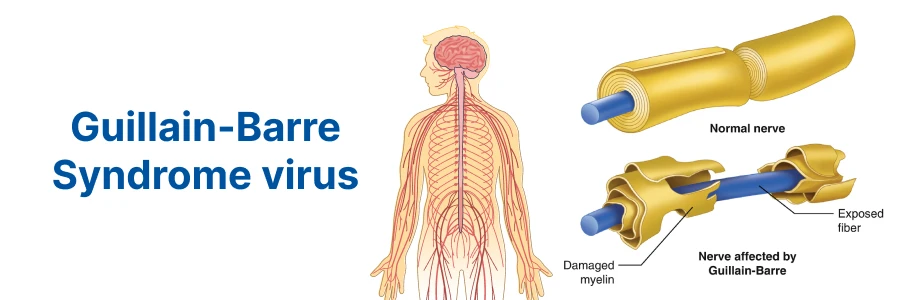Maharashtra Faces Growing Concern as Guillain-Barré Syndrome Claims More Lives
Pune has reported two more deaths linked to suspected Guillain-Barré Syndrome (GBS), bringing the total fatality count in Maharashtra to 11. Of these, four cases have been confirmed as GBS, while seven remain under investigation, according to officials from the Integrated Disease Surveillance Programme of the Maharashtra Public Health Department.
The latest victims, a 27-year-old woman and a 37-year-old man, were both receiving treatment at Pune hospitals. The woman, a resident of the Nandedgaon area, was diagnosed with GBS and admitted to a city hospital. Despite medical efforts, she succumbed to the illness on February 18. The man, hailing from Pune’s Daund area, was being treated at the Sassoon General Hospital but tragically passed away on Monday due to suspected GBS-related complications.
A Rising Health Challenge
The young woman initially experienced loose motions on January 15 but recovered without any medication. However, by January 22, she developed weakness and a loss of strength in her lower limbs, prompting her hospital admission. As her condition deteriorated, she was transferred to another hospital and placed on life support before passing away. Meanwhile, the man had been battling suspected GBS since his admission on January 10. His condition worsened due to acute respiratory failure, ultimately leading to his death.
As of now, Maharashtra has recorded 211 GBS cases, with 183 confirmed and 28 suspected cases. The distribution of cases includes 42 from Pune Municipal Corporation (PMC), 94 from newly added villages in the PMC area, 32 from Pimpri-Chinchwad Municipal Corporation, 33 from Pune rural areas, and 10 from other districts.
Who Is Affected?
GBS has impacted individuals across various age groups. The breakdown is as follows:
24 cases in children aged 0-9
26 cases in the 10-19 age group
44 cases among those aged 20-29
27 cases in the 30-39 category
29 cases among individuals aged 40-49
30 cases in the 50-59 bracket
21 cases affecting those aged 60-69
6 cases in the 70-79 range
4 cases among those aged 80-89
So far, 144 patients have been discharged, 36 remain in intensive care units, and 16 require ventilator support. Encouragingly, no new cases were reported on the latest assessment day. Officials continue to warn residents about symptoms such as sudden weakness or paralysis in the hands or legs, difficulty walking, and prolonged diarrhea.
Government Measures and Public Safety
In response to the growing concern, a state-level rapid response team has been deployed to the affected regions. Local authorities in Pune and surrounding areas have ramped up surveillance activities. Water quality is also under scrutiny, with 6,977 samples collected for chemical and biological analysis. So far, contamination has been detected in 85 sources.
Health officials have urged private medical practitioners to promptly report any new GBS cases to the public health authorities. Additionally, extensive house-to-house surveillance efforts have been conducted, covering 46,534 homes in PMC, 26,460 in PCMC, and 13,956 in Pune’s rural areas. To aid in diagnosis, 82 serum samples have been sent to NIMHANS Bengaluru for further testing.
Health Advisory for Residents
Authorities have issued guidelines to minimize the risk of GBS, emphasizing the importance of consuming fresh, well-cooked food and drinking only boiled water. Residents have been advised to avoid stale or undercooked meat, particularly chicken and mutton.
With proactive measures in place, the government and health officials are striving to contain the spread and impact of GBS. Continued vigilance and public cooperation remain crucial in combating this concerning health crisis.

COMMENTS (0)
Sign in to join the conversation
LOGIN TO COMMENT